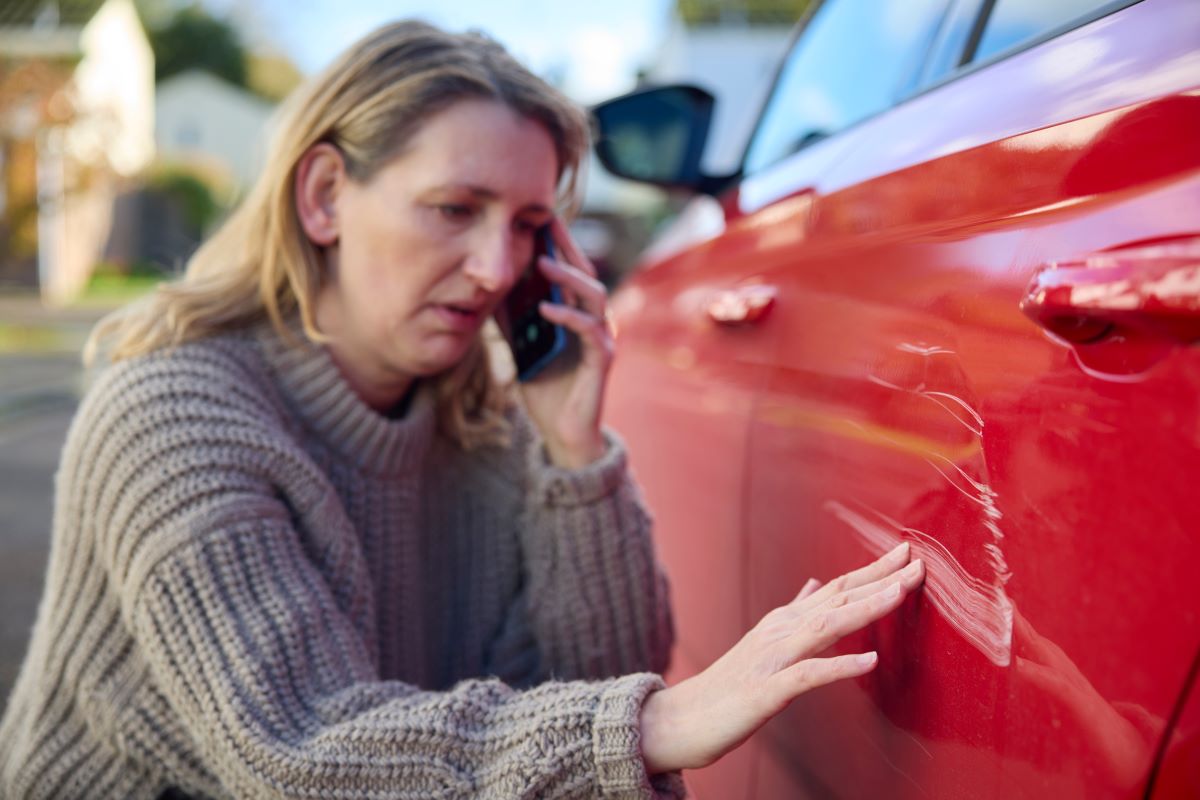
Key Takeaways:We’ve all thought about it—our car gets a mysterious dent or scratch, but rather than pay to have it fixed, we consider filing an insurance claim with our auto insurance carrier.Surely it won’t count against us or raise our premiums, right? Not so fast—be sure you know the facts before you open that claim!When it comes to car ownership, scratches and dents are almost inevitable.Whether it’s a stray shopping cart, a minor fender bender, or an errant rock on the highway, these small damages can be frustrating and costly to repair.
One of the most common questions car owners ask is, “Does car insurance cover scratches and dents?”To answer that question, it’s important to understand the nuances of car insurance, the types of coverage available, and how these relate to cosmetic damage.We also need to delve into the process of making insurance claims for minor damages and learn more about how to avoid scratches and dents in the first place.Understanding Car Insurance Coverage for Cosmetic DamageCar insurance policies can be complex, and understanding what is covered under your policy is crucial.When it comes to scratches and dents, the type of coverage you have will largely determine whether these minor damages are covered.First, let’s understand the basic types of coverage available to vehicle owners:Understanding these distinctions is crucial because many drivers opt for only the minimum required liability insurance, which won’t cover scratches and dents on their own vehicle.
It’s important to evaluate your needs and consider adding comprehensive and collision coverage if you want .Pro Note: If you are financing or leasing your vehicle, your finance company or leasing company will require you to carry both Collision and Comprehensive Coverage to protect their investment as long as they have a vested interest in the property.Weighing the OptionsWhen faced with minor car damage, drivers often consider two options of 1) paying for repairs out-of-pocket, versus 2) filing an insurance claim.Opting to pay out-of-pocket can be advantageous for minor repairs because it typically avoids the potential increase in insurance premiums that can accompany a claim.It also allows for quicker resolution without the need for extensive paperwork or communication with insurance adjusters.On the other hand, filing an insurance claim can provide financial relief for more costly repairs, ensuring that the driver is not burdened with a significant upfront expense.However, this route can lead to higher future premiums and may involve deductibles, making it a less appealing option for minor damages that can be economically managed without insurance intervention.The Impact of Minor Damage Claims on Your Insurance PremiumsFiling an insurance claim for minor damages like scratches and dents can have an impact on your insurance premiums.
While it might seem logical to use your insurance to cover all repairs, doing so can sometimes result in higher costs overall, including:Understanding these factors can help you make more informed decisions about when to use your insurance and when to cover repairs out of pocket.It’s always a good idea to discuss your options with your insurance agent to ensure you are making the best choice for your situation.The Process of Filing an Insurance Claim for Scratches and DentsShould you decide, it will be beneficial to file a claim for the damage, here’s a step-by-step guide to help you navigate the process:Assess the Damage – Before you file a claim, take a close look at the scratches or dents.Determine if the damage is minor or severe enough to warrant an insurance claim.
In some cases, the cost of repairs might be less than your deductible, making a claim unnecessary.Document the Damage – Take clear, detailed photos of the damage.This documentation will be crucial when you file your claim and could help expedite the process.Contact Your Insurance Company – Report the damage to your insurance provider as soon as possible.They will guide you through the process of filing a claim.
Be prepared to provide details about the incident, including when and where it occurred.Get an Estimate – Your insurance company may require you to get an estimate from a repair shop (or three).Some insurers have preferred repair facilities that they recommend, while others allow you to choose your own.Pay the Deductible – If the claim is approved, you will need to pay your deductible before the insurance company covers the remaining cost of the repairs.Repair the Vehicle – Once the claim is processed and approved, you can proceed with the repairs.Ensure that the repair shop provides you with a detailed invoice to submit to your insurance company if needed.How to Avoid Scratches and DentsPrevention is always better than cure, and this certainly applies to scratches and dents on your car.
While it’s impossible to avoid every potential hazard, there are several steps you can take to minimize the risk of cosmetic damage to your vehicle.By taking these preventive measures, you can reduce the likelihood of scratches and dents on your car, ultimately saving you time and money on repairs.The Importance of Comprehensive Auto InsuranceWhile taking preventive measures can help, having comprehensive auto insurance is essential for protecting your investment in your vehicle.Comprehensive coverage not only provides peace of mind but also ensures that you are financially protected against a wide range of potential damages, including scratches and dents.To Sum UpIn conclusion, understanding your and the coverage it provides for scratches and dents is essential.While preventive measures can help, having comprehensive auto insurance is crucial for protecting your investment and providing peace of mind.
By making informed decisions about your coverage and knowing when to file a claim, you can ensure that your car remains in excellent condition without unnecessary financial strain.By following these guidelines and understanding the intricacies of car insurance, you can be better prepared to handle minor damages and maintain your vehicle’s appearance and value.Whether you’re dealing with a minor scratch or a significant dent, knowing your insurance options and taking proactive steps can make all the difference.Learn more at and obtain a quote for the best pricing from highly reputable national insurance carriers.
Publisher: EINSURANCE








